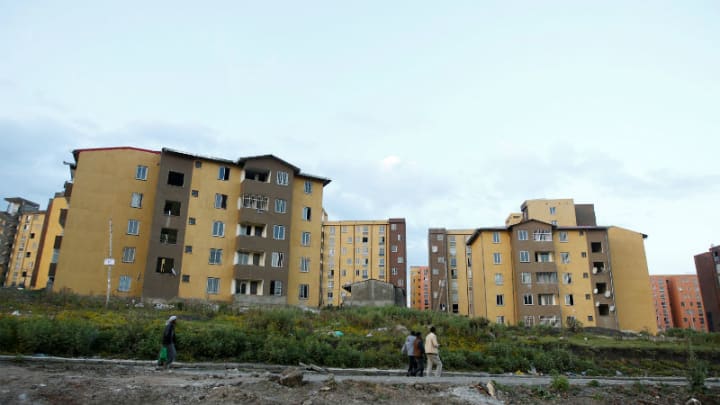For Nigeria to successfully build its way out of economic downturn through mass housing and road construction using funds from the pension industry, it would have to set up a private sector-driven structure that would guarantee a return on investment for pension contributors, players in the pension industry have said.
For the pension industry to channel its funds to government projects like roads and mass housing, the The players expect that planned project should be the type that meets some of their investment standards and would have a structure that makes the funds safe.
“We want efficiency, safety and the right pricing so that pension contributions that would be invested in the housing project will come back with interest,” Oguche Agudah, Chief Executive Officer, Pension Fund Operators Association of Nigeria (PENOP), said, adding that there has been an on-going discussion on the pension-enabled housing development.
According to him, “we are okay with the fact that government wants to provide homes for Nigerians,” but if the initiative is going to be successful, the private sector is the best option.”
As a way to avert the post-COVID-19 recession awaiting Nigeria’s oil-dependent economy, the Economic Sustainability Committee (ESC), chaired by Vice President Yemi Osinbajo, recommended a mass housing programme expected to deliver up to 300,000 homes annually.
The housing project alongside an extensive public works and road construction programme that will be focusing on both major and rural roads are expected to shield the already troubled Africa’s largest economy from taking more hit from the pandemic.
To fund the project that will close 1.5 percent of Nigeria’s housing deficit of more than 20 million units, the Federal Government plans to raise about N2 trillion long term capital from the pension industry.
Explaining how pension fund can be accessed, Peter Aghahowa, Head of Corporate Communications Department at National Pension Commission (PenCom) said “if government is coming out with an instrument and the PFAs sees it as a good investment, then they should be able to put in their funds as long as “it meets the investment guidelines set up by the regulator.”
According to Aghahowa, the pension industry is one that is highly regulated and, as such, “the investment has to be allowable and should be able to offer good returns.”
Meanwhile, industry statistics estimate, in monetary terms, that Nigeria’s property industry with one of the lowest homeownership rates in Africa requires between N170trillon to N200trillion to bridge the conservative 17million housing demand-supply gap if each housing unit is to cost N10million.
Before the early effect of COVID-19 slowed Nigeria’s housing industry, its lowest level in two years at -4.57 percent as of March 31, 2020, access to affordable housing in Nigeria was crippled by lack of non-functioning mortgage system, high cost of property development buoyed by the country’s archaic Land Use Act, among other factors.
Individual efforts at increasing Nigeria’s real housing stock, by way of developing more houses, shows that offering insights into possible solutions have not helped to reduce the deficit or increase the ownership level which is a little above 20 million units.
Despite its large-size population, Nigeria is crawling behind its peers in terms of homeownership level. Whereas the homeownership rate is 84 percent in Indonesia, 75 percent in Kenya and 56 percent in South Africa, Nigeria, with a lot more people in need of housing, has only 25 percent.
While building 300,000 housing units in a country that has a housing demand-supply gap that has skyrocketed in the past decade seems like a drop of water in an ocean, stakeholders welcome the idea as a good starting point.
“With the quantum of buildings and roads to be provided, more money will be in circulation and people will be gainfully employed. With more money in circulation and a slight reduction in the unemployment rate, this initiative will contribute its quota to rejuvenating the economy,” Gbenga Olaniyan, CEO, Estate Links Limited, said.
Source: Businessday.ng




